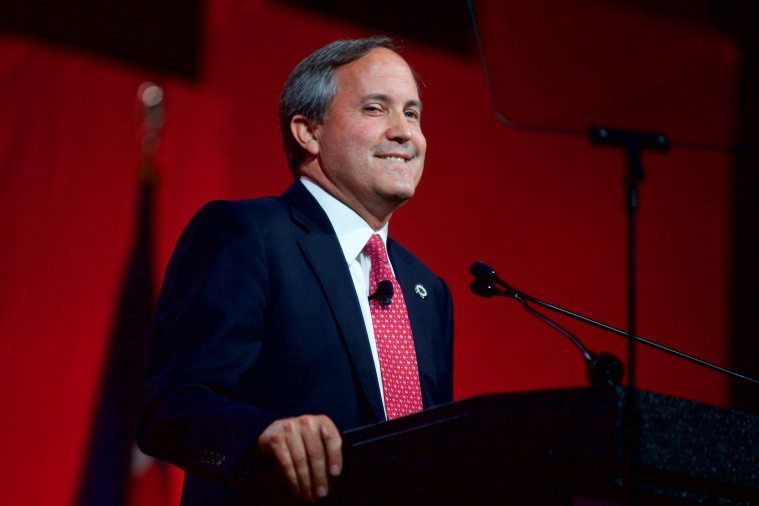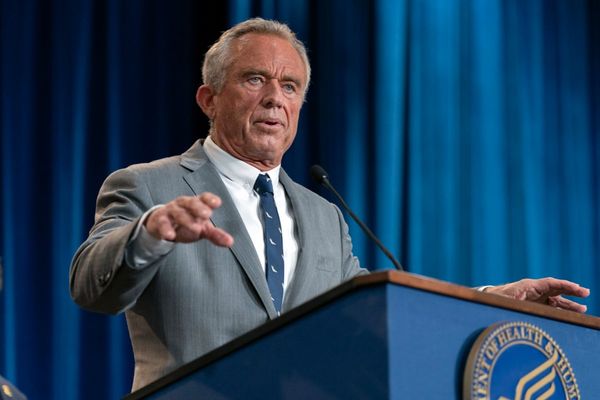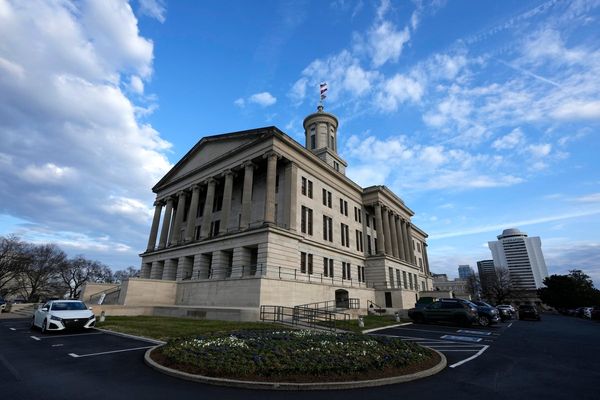Texas Attorney General Ken Paxton says state employees can no longer make payroll donations to Planned Parenthood under a new state law that bans abortion providers and their affiliates from partnering with local government entities.
Senate Bill 22, which went into effect in September, is already having some of the impacts reproductive health advocates warned about: a ban on a sex education curriculum partnership between Planned Parenthood and Austin Independent School District, an end to a free condom distribution program in El Paso. Now, an opinion issued by Paxton last week will kick Planned Parenthood out from the State Employee Charitable Campaign (SECC), a program that allows state employees to donate part of their paycheck to a charity of their choice. Paxton says the program constitutes a “taxpayer resource transaction”—the hazy language used to describe activities banned under the new law.
Advocates have long worried about how the nebulous new language could be interpreted and stretched. “This has always been our greatest concern about SB 22,” says Sarah Wheat, chief external affairs officer for Planned Parenthood of Greater Texas. “I think it’s an intentionally vague political term that is dismantling these longtime partnerships in different ways.” Texas lawmakers spend every legislative session trying to block funding for Planned Parenthood, Wheat notes, but she says that trying to dictate individuals’ financial decisions is “a new political low.”
The attorney general’s office did not immediately respond to a request for comment. In his opinion, Paxton wrote that including an organization in the SECC “involves a transaction that conveys value to the charity in the form of both employee donations and the service of processing those donations through the state payroll system.” Paxton, who has been under federal indictment for more than four years and has so far avoided a trial, is currently leading the national lawsuit to strike down the Affordable Care Act.

Planned Parenthood has participated in the SECC program for at least two decades. But on Friday, Wheat says, she received notice that the nonprofit would not be eligible to apply again early this year, in light of Paxton’s opinion. The donations lost from Planned Parenthood’s exclusion from the charitable program will likely amount to several hundred thousand dollars each year. Last year, Planned Parenthood of Greater Texas alone received $180,000 through the program, Wheat says.
In one of the longest and most emotional debates of the last legislative session, opponents of Senate Bill 22 warned that it would have devastating effects on access to preventive health services in a state that already has the highest uninsured rate, poor maternal health outcomes, and a family planning network that’s struggling to recover from budget cuts implemented years ago. But the measure does not actually limit abortion—which taxpayer dollars are already blocked from funding.
Senate Bill 22 is the latest salvo in the state’s crusade against Planned Parenthood. Tens of thousands of Texans lost access to care when conservative lawmakers slashed the state family planning budget by two-thirds in 2011 and kicked Planned Parenthood out of the low-income women’s health program in 2013. This spring, Republicans touted the state’s replacement program, Healthy Texas Women, as the reason SB 22 wouldn’t erode reproductive health access. But the state’s own data on the program shows that Planned Parenthood has mostly been replaced by small providers that can’t fill the gap and meet demand. In 2016, the state tapped an anti-abortion group to serve more patients than Planned Parenthood had, then canceled its multimillion-dollar contracts two weeks after the Observer reported that it had served less than 5 percent of the patients promised. Following an Observer investigation published in June that found serious mismanagement and misuse of taxpayer funds under the group’s state contracts, state investigators issued their report in November finding “serious contractual violations.”
The implications of Senate Bill 22 are still unfolding, and how the law’s language will be interpreted next is unclear. In the meantime, Wheat says Planned Parenthood is considering legal action following the AG opinion.
Read more from the Observer:
-
Trump Has Kneecapped Another Environmental Safeguard. Could That Spur Expanded Uranium Mining in South Texas? The president seeks to weaken a 50-year-old federal law requiring regulators to weigh environmental risks before approving major projects.
-
The Return of Karl Rove: Political strategist and pundit Karl Rove was an architect of the GOP takeover of Texas in the 1980s. Now, he’s come home to ensure Trump doesn’t unravel his legacy.
-
A Radical Idea: Vote Your Conscience in the Presidential Primary: Democrats spend a lot of time thinking about what Democratic voters might be thinking about. Columnist Christopher Hooks argues that this focus on electability isn’t how primaries are supposed to work.







